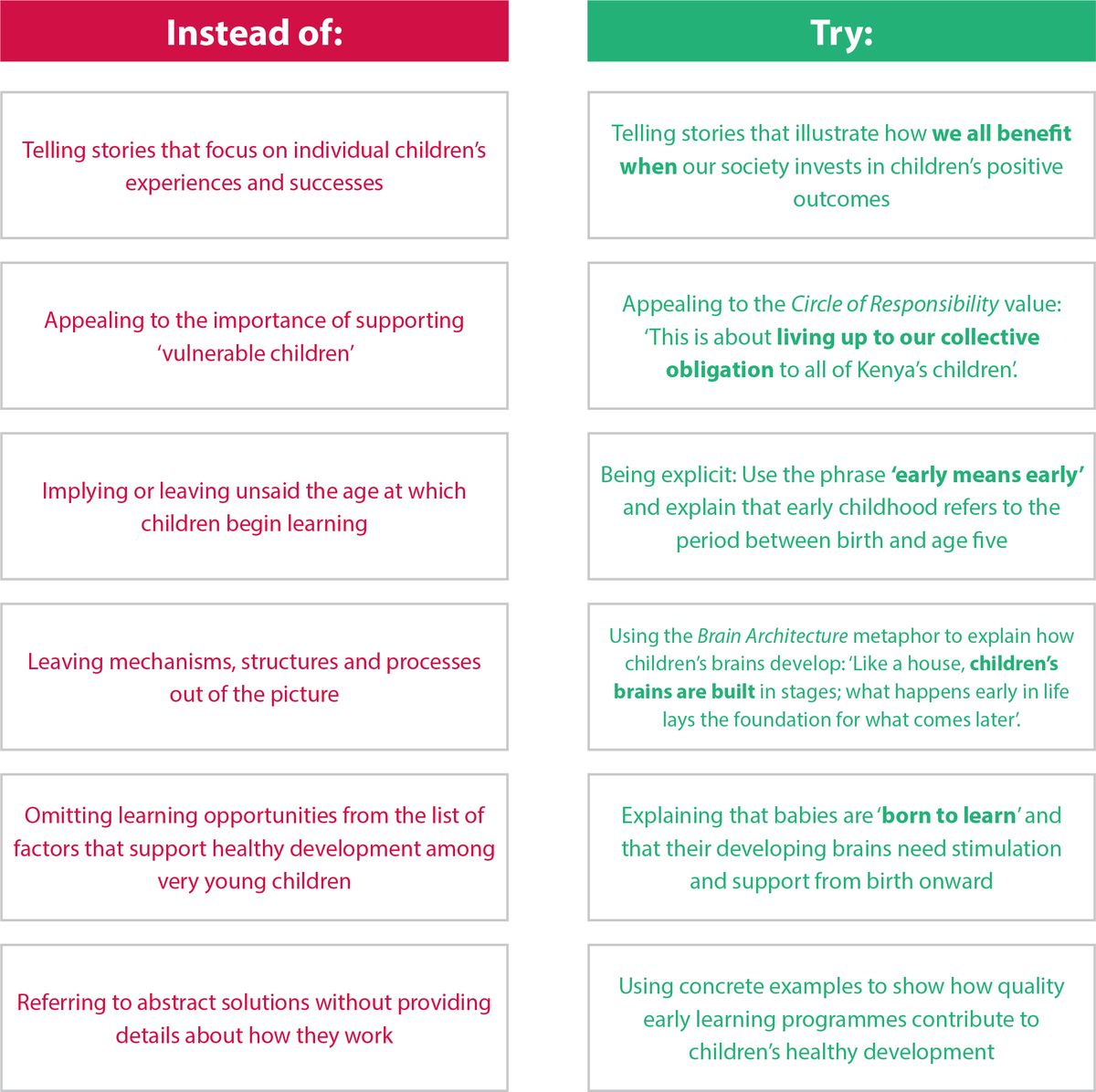Too often, advocacy is conducted without a full understanding of how the public perceives the issues involved. In this scenario, public misunderstanding of an issue may contribute to a general lack of public support to address that issue, and advocacy messages may not be successful as they don’t meet the public where they are.
Why is understanding how the public perceives the need for early childhood development important? It is vital for communities and key stakeholders, from the general public to policymakers, to value early development so that young children can thrive. By identifying ways to more effectively communicate the importance of early childhood development, advocates can successfully connect with the community and accelerate change on both micro and macro levels.
In the newly released communications toolkit on Reframing Early Childhood Development and Learning, FrameWorks Institute summarizes recent research conducted in Kenya and highlights common public assumptions about early childhood development and why these assumptions could limit public demand for expanding support for these programs. Through providing specific guidelines on how to reframe and strategically redirect public perceptions, there is the opportunity to deepen knowledge about children’s early development among members of the Kenyan public and the broader early childhood development field. This report is the culmination of a series of research activities resulting from a larger collaboration between FrameWorks Institute, UNICEF, the Center on the Developing Child at Harvard University and the Africa Early Childhood Network, with funding from the Conrad N. Hilton Foundation.
FrameWorks conducted 44 in-depth interviews and 60 brief on-the-street interviews with members of the public in Kenya. In addition to the full report, FrameWorks Institute has developed a toolkit to guide future advocacy and communications efforts. Within the toolkit are research and message briefs that detail the gaps between experts, decision-makers and the public understanding of early childhood development in Kenya, which will provide a basis to ensure all key stakeholders have a clear understanding of the critical role that early development, especially brain development, plays in shaping the future of our children.
The toolkit includes a set of framing recommendations to advance public understanding. For example, researchers found the public often associates the phrase “early childhood development” with older, school-age children, despite the fact that brain development is most rapid from birth through age two. The report recommends that advocacy and communications efforts include the phrase “early means early” in order to build understanding of the importance of these early years. FrameWorks Institute also suggests that the metaphor “brain architecture” helps the public visualize that brains are built over time, and that early development impacts later outcomes.
“Research showed that this [brain architecture] metaphor effectively communicates process, or the idea that brains are a key locus of development and are actively built from relationships and experience.”
The toolkit also provides “dos and don’ts” of communicating around early development:

This evidence-based toolkit offers framing recommendations, communication tools, and deeper research and learning.
These findings are already in use in Kenya as part of efforts to develop social-behavior change campaigns targeting caregivers of young children, as well as policymakers and other community members. This new report is the first step of a multi-stage process to develop culturally resonant messages to effectively communicate how communities can best support young children.
A FrameWorks Institute Communications Toolkit